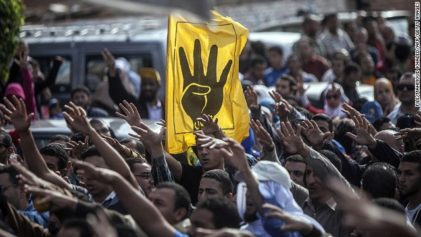Egyptian President Mohammed Morsi hopes to end the national crisis he ignited in Egypt by having the assembly writing Egypt’s new constitution vote on the document today, which would set in motion the steps to give the power back to the parliament that Morsi controversially took away by his infamous Nov. 22 decree.
The president said in an interview with Time that the move would quell the growing uprising in his nation because once a new constitution is in place, all of his critics will see that he wasn’t trying to grab unprecedented new powers for the president and become a new pharaoh.
“The reason why I went to prison is that I was defending the judiciary and Egyptian judges. I know perfectly what it means to have separation between the three powers, executive power, legislative power and the judiciary,” Morsi, who was jailed for dissident activities by former President Hosni Mubarak, told Time.
He said public opinion surveys show that a majority of the public is behind him, despite the widespread protests and anger in the streets that has resulted in two deaths and hundreds of injuries ignited by the decree he issued last Thursday giving him sweeping powers that place him above the judiciary and beyond legal challenge.
“I think you have seen the most recent opinion surveys. I think more than 80, around 90 percent of the people in Egypt are — according to these opinion measures — they are with what I have done. It’s not against the people, It’s with the people, coincides with the benefits,” he said.
Morsi plans to address the nation to plead for calm as the constituent assembly takes a vote on each of the 234 separate articles in the draft of the constitution.
“If we had a constitution, then all of what I have said or done last week will stop,” Morsi said in the interview.
Once the constitution is passed by the assembly, it must go to Morsi for approval and then to the voters in a referendum.
The real underlying issue at stake in this conflict is how much power the ultra-religious Islamists will have to embed their conservative beliefs into the nation’s constitution. As a member of the Muslim Brotherhood, President Morsi is eager to give Islamists as much power as possible, but he is being opposed by the more liberal secular forces in Egypt and also by a judiciary that is still loyal to ousted former President Hosni Mubarak.
The struggle is about the nature of the Egyptian lifestyle for years to come: Will the country allow Islamists to dominate the government, as has happened in other North African and Arab nations, which will likely lead to a diminishing of human rights for the citizenry, or will the more liberal secular forces win the day? The outcome could have a substantial effect on the day-to-day freedoms of the Egyptian public.
Many Morsi critics think his decision to rush the vote on the constitution could make things worse in a country on edge.
“The secular forces and the church and the judges are not happy with the constitution, the journalists are not happy, so I think this will increase tensions in the country,” said Mustapha Kamal Al-Sayyid, a professor of political science at Cairo University. “I don’t know how the referendum can be organized if the judges are upset,” he added.
The judiciary oversees Egyptian elections.
Leading opposition figure and former Arab League chief Amr Moussa, who walked out of the assembly earlier this month, called Morsi’s move “nonsensical.”
This is one of the steps that shouldn’t be taken, given the background of anger and resentment to the current constitutional assembly,” he told Reuters.
At the start of the session to vote on the 234 articles, Hossam el-Gheriyani, the speaker of the constituent assembly, said, “May God bless us on this day.”
The Muslim Brotherhood is gambling that once the constitution is approved by the assemby and by Morsi, they can mobilize the public to support it so that the country can move on to repairing its battered economy.
The constitution is the eagerly anticipated foundation for the new Egypt after Mubarak’s three decades of autocratic rule. It will determine the powers of the president and parliament and define the roles of the judiciary and a military establishment that had been at the heart of power for decades until Mubarak’s downfall. It will also establish the role of Islamic law, also known as sharia.


